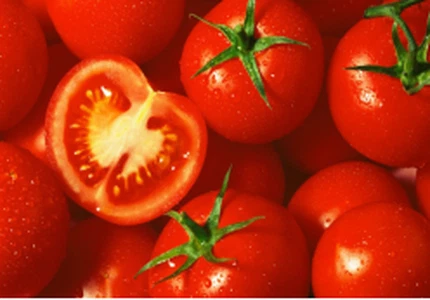How Much Lycopene Per Day for Prostate Health
Lycopene, a powerful antioxidant found predominantly in tomatoes, has been widely studied for its potential benefits in supporting prostate health. The recommended daily intake for prostate health varies, but most studies suggest a range between 10–30 mg of lycopene per day for potential benefits, particularly in reducing the risk of prostate enlargement and promoting overall prostate function.
For those seeking a high-quality lycopene supplement, KINGSCI offers a potent lycopene powder with complete certifications, high inventory, and quick delivery. Contact us for free samples.
How Much Lycopene Should I Take for an Enlarged Prostate?
Lycopene's role in prostate health has been linked to its ability to lower oxidative stress and inflammation within the prostate, contributing to prostate health maintenance.
Recommended Daily Dosage for Prostate Support
Research indicates that a daily intake of 10–30 mg of lycopene may be effective for supporting prostate health and potentially reducing prostate enlargement. This amount is achievable through either diet-primarily by consuming tomato products-or supplements. Lycopene supplements are beneficial for maintaining a consistent intake, especially when fresh tomatoes or cooked tomato products are not part of one's regular diet.
Lycopene's Role in Reducing Prostate Inflammation
Lycopene is believed to reduce prostate inflammation by combating oxidative stress, which can otherwise lead to cell damage and enlargement over time. Lycopene's antioxidant action is particularly useful in combating oxidative damage caused by free radicals, thus potentially reducing symptoms associated with an enlarged prostate.
Supporting Studies on Lycopene for Prostate Health
Numerous studies link higher lycopene intake with a lower incidence of prostate issues. One study published in Cancer Epidemiology, Biomarkers & Prevention found that men with higher lycopene levels in their blood had a lower risk of prostate enlargement.
Is 40mg of Lycopene Too Much?
Determining if 40 mg is an excessive amount of lycopene depends on an individual's specific health needs and existing dietary intake.
Safety of Lycopene Supplements
For most individuals, a daily lycopene intake of up to 40 mg is considered safe and effective for prostate health, although consistent intake beyond 30 mg may not necessarily offer added benefits. Health professionals recommend monitoring total dietary and supplemental intake to stay within safe and effective ranges.
Potential Benefits and Risks of Higher Doses
Some studies suggest that doses above 30 mg may provide additional antioxidant effects; however, the benefits may plateau. While lycopene is non-toxic and naturally occurring, an excess can sometimes cause skin discoloration, known as lycopenemia, though it's harmless and reversible by adjusting intake.
Recommendations from Health Authorities
Most health guidelines suggest that lycopene supplementation should stay within a conservative range unless advised otherwise by a healthcare provider. If you're interested in maximizing prostate benefits, discuss an appropriate dose with your healthcare provider. For high-quality lycopene supplements, KINGSCI offers a range of products that align with industry standards.
How Much Lycopene Should a Man Take Daily?
Daily lycopene intake recommendations for men can vary depending on health goals and individual needs.
Ideal Lycopene Levels for General Health vs. Prostate Health
While general recommendations for lycopene consumption are often around 6–15 mg per day for antioxidant benefits, higher levels (up to 30 mg) are associated with enhanced prostate health benefits. Lycopene's effect on lowering prostate cancer risk has made it a popular choice among men prioritizing prostate wellness.
Dietary Sources vs. Supplementation
Men can obtain lycopene from foods like tomatoes, watermelon, and grapefruit, but supplements are often a convenient way to ensure consistent intake. Studies indicate that the form of lycopene found in supplements is easily absorbed by the body, making it a practical choice for men aiming to maintain specific daily levels.
Supporting Prostate Health Through Consistency
Consistency is crucial to harnessing the benefits of lycopene for prostate health. For men interested in incorporating this antioxidant, KINGSCI provides lycopene supplements that meet quality standards. Contact us for free samples to support your daily intake.
What Three Nuts Can Shrink a Swollen Prostate?
In addition to lycopene, some nuts may contribute positively to prostate health due to their nutrient composition.
Brazil Nuts
Brazil nuts are a rich source of selenium, an essential mineral that has been studied for its role in prostate health. Selenium may help reduce inflammation and improve immune function, supporting prostate wellness.
Almonds
Almonds are high in vitamin E and antioxidants, which can help reduce inflammation. These nuts may work synergistically with lycopene-rich foods, promoting antioxidant defenses and enhancing prostate health.
Walnuts
Walnuts contain omega-3 fatty acids and polyphenols, which help lower oxidative stress. Together with lycopene, walnuts may form part of a diet focused on prostate health and inflammation reduction.
How Many Tomatoes a Day for Prostate?
Tomatoes are one of the best natural sources of lycopene, making them beneficial for prostate health.
Lycopene Content in Tomatoes
One medium tomato provides about 3 mg of lycopene. To meet a goal of 10–30 mg of lycopene daily, you would need to consume between 3 to 10 tomatoes, depending on size and variety. Tomato paste, sauces, and cooked tomato products offer higher concentrations of lycopene per serving.
Maximizing Lycopene Absorption
Cooking tomatoes enhances lycopene's bioavailability. Pairing cooked tomatoes with healthy fats like olive oil further increases absorption, making it easier to reach beneficial levels for prostate health.
Alternative Sources if Tomato Intake is Insufficient
For those unable to meet their lycopene needs through food, supplements offer a practical alternative. KINGSCI provides potent lycopene supplements, making it simple to achieve a consistent intake for prostate health.
What Happens if You Take Too Much Lycopene?
While lycopene is safe in most cases, excessive intake may have minor side effects.
Lycopenemia: Harmless Skin Discoloration
Excessive lycopene intake can lead to lycopenemia, where the skin takes on an orange tint. This is a harmless condition that typically resolves when lycopene intake is reduced.
Gastrointestinal Discomfort
Large doses of lycopene may cause digestive discomfort, particularly for individuals with sensitive stomachs. Staying within recommended dosages, particularly through supplementation, can help avoid potential stomach upset.
Safe and Effective Dosing
To ensure effective, safe intake, consult a healthcare provider when considering doses above the recommended range. KINGSCI offers trusted lycopene supplements designed to help you maintain a safe, effective daily intake. Contact us for free samples to find the right product for your needs.
FAQ
Q: Is lycopene only available in tomatoes?
A: No, lycopene is also found in watermelon, grapefruit, and papaya, though tomatoes are the richest source.
Q: Can lycopene prevent prostate cancer?
A: While lycopene supports prostate health, it's not a guaranteed preventive measure. Some studies suggest it may lower prostate cancer risk, but more research is needed.
Q: Should I choose whole tomatoes or lycopene supplements?
A: Both have benefits. Whole tomatoes offer additional nutrients, while supplements provide concentrated lycopene, allowing for consistent daily intake.
References
- Giovannucci, E. et al. "Intake of Lycopene in Relation to Risk of Prostate Cancer." Journal of the National Cancer Institute.
- Chen, L. et al. "Lycopene and Risk of Prostate Cancer." Cancer Epidemiology, Biomarkers & Prevention.
- Agarwal, S., Rao, A. V. "Tomato Lycopene and Its Role in Human Health and Chronic Diseases." CMAJ.










